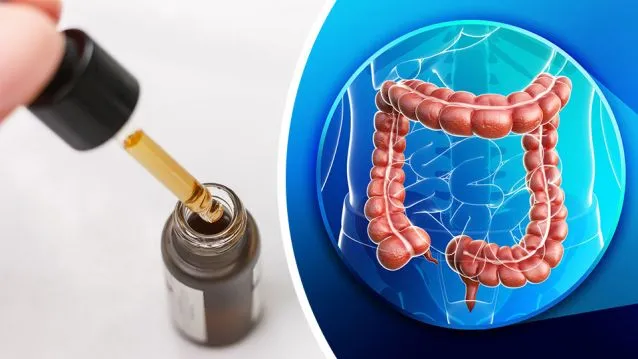These days, we’re all about treating our taste buds. The average American diet is thoroughly doused in sweet, salty, umami (MSG, anyone?) and even the occasional sour foods. Together, these comprise four of our five taste senses, but the fifth flavor is virtually absent from our modern day diets. Can you guess what it is?
Bitterness. Well, bitter flavors, to be more precise. Without even consciously thinking about it, our taste buds have been taught by mass food production to avoid bitter foods at all cost. Even a hint of something bitter in a meal has our mouths puckering and our eyes watering, perhaps even a fork clattering to the ground as the shock of this unknown flavor hits our tongue.
Even our turn of speak lends a devilish air to bitter foods: to be labeled “bitter and twisted” or to have a bitter taste in one’s mouth are not to be desired.

But this aversion to bitter could actually be doing our digestive systems — and our health in general — more harm than good. And one way to combat this lack of bitter compounds in our diet is to get your hands on some digestive bitters — herbal concoctions that can be taken before or after meals to stimulate our bitter tastebuds and ramp up digestive capacity.
In this post, we’ll dive into some of the science behind how digestive bitters work, along with a whole lot of reasons why you should probably have a bottle of them sitting in your kitchen cupboard.
What are digestive bitters?
Digestive bitters work on a very basic principle: stimulate certain taste receptors located on the tongue and other areas of the mouth and convince your body that you’ve just eaten something bitter. This triggers a chain reaction bitter taste receptors all the way down your digestive tract, preparing your gastrointestinal organs for the barrage of half-chewed food you’re about to swallow.

Digestive bitters have something of a rich history, being first devised in the 16th century as a means of curing a wide range of maladies. As bitters made their name in the medieval medical world, they soon began to make their way into the realm of alcoholic beverages — where they would remain a vital ingredient in any cocktail until the late 1800s.
Then, in the mid-20th century, bitters made their way back into the health sector, with a series of scientific articles showing how effective they were in stimulating gastric secretion and improving digestive efficiency, particularly after big or “rich” meals.
These days, most digestive bitters are alcoholic extracts of strong medicinal herbs. These are herbs that are often used in other herbals remedies, including dandelion, burdock, chamomile, ginger, artichoke and fenugreek. Different herbal ingredients in bitters elicit different responses to specific digestive issues, but all are effective in stimulating the digestive organs and minimizing any symptoms of digestive upset during and after eating.
Here are just some of the ways in which digestive bitters can work wonders for your health.
12 benefits of digestive bitters
The scene is set: the Christmas table groans under the weight of a vast quantity of food, honey-glazed hams and oversized turkeys jostling for space in between platters piled-high with every recipe under the sun. In the past, far smaller meals have sent you into a woeful state of gas, bloating, cramps and general digestive upset for days afterward… but this time you have a secret weapon.
You bust out your bottle of digestive bitters, take a small sip, and a wonderful cascade of events unfolds. The salivary glands in your mouth begin producing enzyme-rich saliva, the stomach starts to produce hydrochloric acid (the stuff that breaks down a lot of the food we eat), and the esophageal sphincter contracts, thereby preventing movement of all that stomach acid up into your throat.
In one fell swoop, you’ve primed your digestive system for action, long before the first forkful of Christmas dinner has even made it to your mouth.
And it doesn’t stop there. The digestive bitters you just sipped on have told the smooth muscle lining your stomach to start contracting; a process that improves the rate at which food moves through your digestive system and prevents the development of slow-fermenting food in the stomach that can lead to problems with gas or even gastric ulcers.
Meanwhile, those digestive bitters have also sent a polite message to your pancreas, asking it to begin releasing enzymes and probiotics designed to help break down those food compounds that have made it past your stomach intact. Add to that improved fat breakdown from increased bile production, and you’ve got yourself one very powerful secret weapon.
Simply taking a small sip of digestive bitters before, during or after meals will help to:
- Avoid gas and bloating
- Prevent heartburn
- Naturally encourage the production of digestive enzymes: Meaning you can throw your enzyme supplements away!
- Increase production of hydrochloric acid (HCl) and bile: Both of these are critical for efficient breakdown of the foods you eat
- Soothe an upset stomach
- Lower risk of nausea
- Improve gastric emptying and combat constipation
- Increase absorption of nutrients: Including vitamins and minerals from the foods you eat
- Curb appetite as you gain more sustenance from every meal
- Regulate blood sugar levels after eating
- Reduce risk of developing gastric ulcers and gastrointestinal infection
- Give your liver a much-needed vacation
It’s hard to imagine that something so simple as a small taste of something bitter could provide so many benefits, but that’s exactly what the research (and centuries of anecdotal evidence) says. Use your digestive bitters sparingly, determine which herbal concoctions will work best for your needs, and you will undoubtedly reap the digestive rewards.
FREE BOOK: 4,000 Year-Old Ancient Secret to Help You Fight Dangerous Inflammation =>
— Liivi Hess

